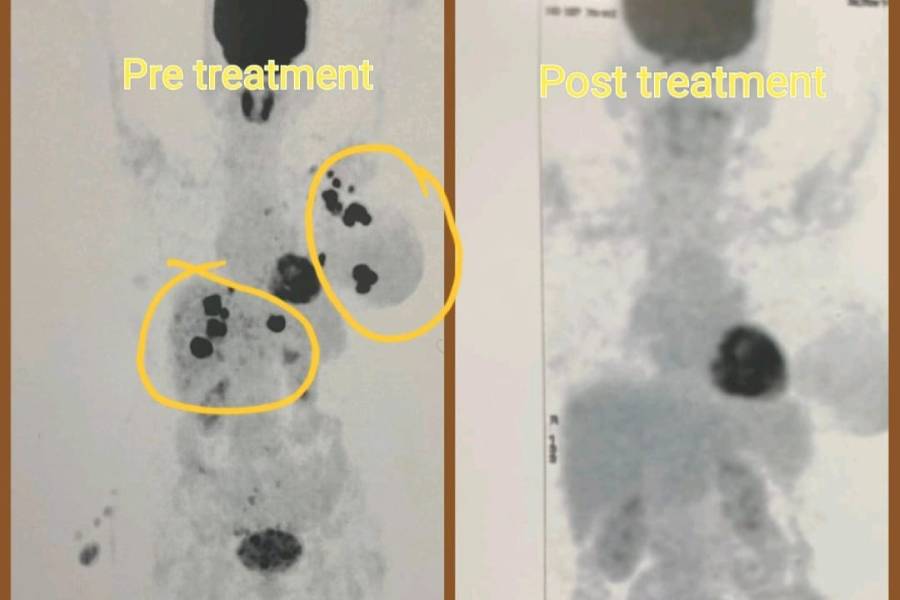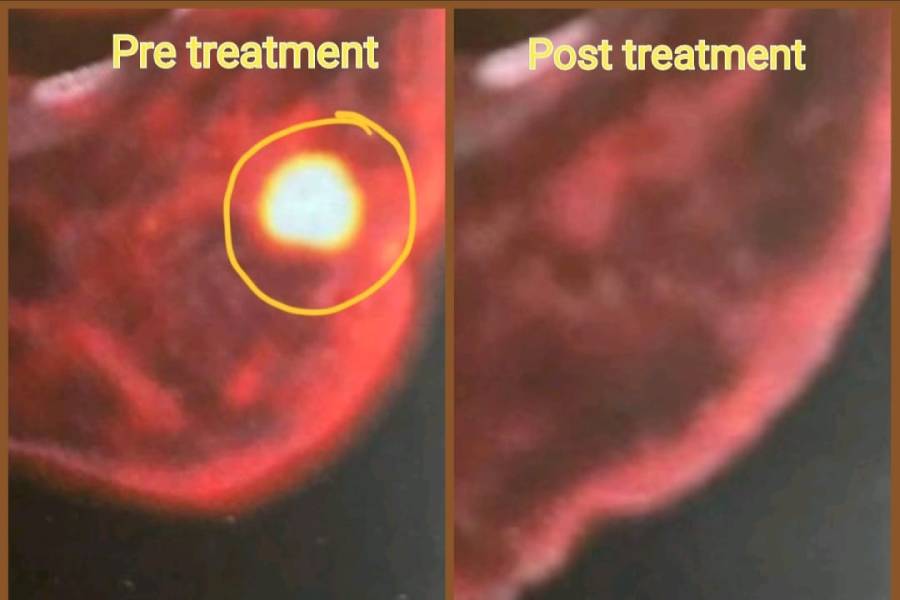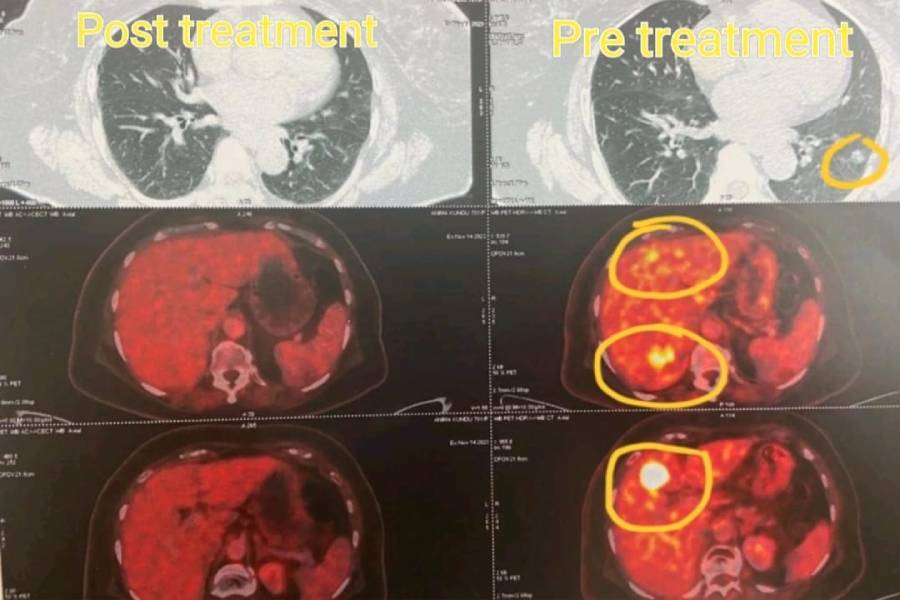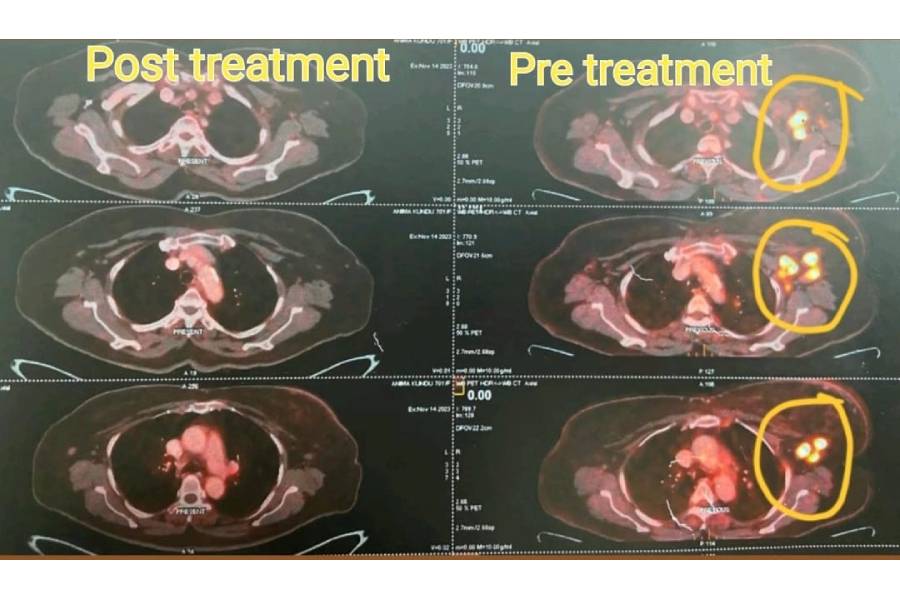Successful Management of Her2 Positive Breast Cancer with Targeted Therapy
Dr. Pratik Patil, a renowned cancer specialist at Jupiter Hospital, Baner Pune, recently encountered a challenging case involving a 78-year-old lady. She presented with a left breast lump accompanied by nipple bleeding, leading to a diagnosis of Invasive Ductal Carcinoma (IDC) with Her2 positive breast cancer upon biopsy and PET CT scan.
Initial Refusal of Treatment:
Despite the clear diagnosis, the patient initially refused conventional treatment and opted for self-medication with only paracetamol. This posed a significant challenge in addressing the aggressive nature of the cancer, especially considering the Her2 positive status.
Disease Progression:
Three months later, the patient returned with alarming developments – liver and lung metastases. The disease had advanced rapidly, underscoring the urgency for intervention. Dr. Patil immediately initiated a comprehensive counseling session to discuss the gravity of the situation and potential treatment options.
Initiation of Targeted Therapy:
Given the patient’s reluctance towards traditional treatments such as chemotherapy and surgery, Dr. Patil recommended a targeted therapy approach. The patient agreed to undergo therapy in the form of Her2-targeted injections. These injections were administered intravenously every 21 days, and remarkably, the patient experienced zero side effects throughout the treatment.
Treatment Outcome:
Follow-up PET CT scans painted a remarkable picture of success. The tumor, which initially manifested in the left breast and later metastasized to the liver and lungs, completely vanished with targeted therapy alone. This outcome was achieved without resorting to conventional chemotherapy, surgery, or other potentially painful interventions.
Conclusion:
This case highlights the efficacy of targeted therapy in managing Her2 positive breast cancer, even in cases where patients are initially hesitant to undergo traditional treatments. Dr. Pratik Patil‘s expertise and the patient’s willingness to explore alternative options played pivotal roles in achieving a positive outcome. This success underscores the importance of personalized and patient-centered approaches in the field of oncology.
WhatsApp us




